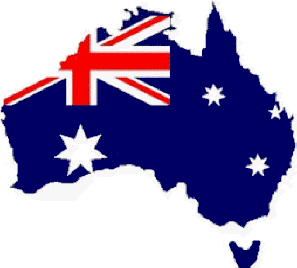By Christopher Trick, Staff Writer

Facebook has been under scrutiny in the media due to allegations that the company is suppressing freedom of speech, invading people’s privacy, and exercising undue influence in national elections.
In April 2018, Facebook CEO Mark Zuckergerg appeared before Congress to answer questions about his company’s mishandling of data, allowing so-called fake news to be disseminated on his platform, and suppression of unconventional opinions.
In 2020, Zuckerberg gave a speech in Utah saying, “At some point, Facebook must stand up for free speech.”
Zuckerberg’s words, however, have not held up in light of recent events.
According to BBC News, Facebook users in Australia have been blocked from viewing and sharing local and international news, while local publishers have been banned from sharing or posting any link on their pages.
Facebook’s actions came following a newly proposed Australian law that seeks to curb obscene profits amassed by big tech companies, as over $80 of every $100 spent on digital advertising is spent on Google and Facebook in Australia, posing a threat to smaller publishers.
Facebook’s Australian managing director William Easton, however, says that the law punishes the company “for content it didn’t take or ask for” because Facebook has little control over which individuals decide to use its platform.
The tech-giant’s latest move has been criticized by many Australian officials, including Prime Minister Scott Morrison, who called Facebook’s actions a plot to “unfriend Australia,” and that the company was “as arrogant as they were disappointing.”
Almost 17 million Australians view Facebook each month, making it the number one social media platform for news in the country.
Some have expressed concerns that conspiracy theories and half-truths may take the place of objective reporting due to the newly created information vacuum.
These concerns prove especially valid in light of an increasing need for accurate information regarding the COVID-19 vaccine.
Human Rights Watch’s Australian director Elaine Pearson called Facebook’s latest move a “dangerous turn of events.”
In the face of heavy criticism, however, Facebook has said that it will continue to remove harmful misinformation, provide users with reliable health advice, and work with fact-checkers to prevent inaccurate information from spreading across its platforms.
Several students have expressed dismay and shock at Facebook’s actions.
“I just can’t believe what’s going on,” freshman journalism major John Carter said. “One of the biggest news platforms in the world is banning an entire country from seeing the news. Talk about irony.”
“I’m not surprised they Facebook is doing this,” sophomore journalism major Clara Lopez said. “They’ve censored things they don’t like and tracked your every move like a hawk. These guys really freak me out.”
“I bet they’re going to ban people from talking soon, too,” junior journalism major Shawn Darcy said. “I love how all these big tech companies like Facebook say they’re ‘for the people’ and ‘encourage free expression’ when everyone knows they don’t. It’s a joke.”
Though Facebook’s measures may seem tyrannical to many Australians, some remain hopeful that the company’s decision is only temporary. “I use Facebook to keep in touch with many people I do business with,” Leonardo Smith, a partner at the Australian law firm Smith, Ryan, and Harding LLP, said in an interview with BBC. “I hope Facebook allows people to communicate freely again soon.”




Be First to Comment